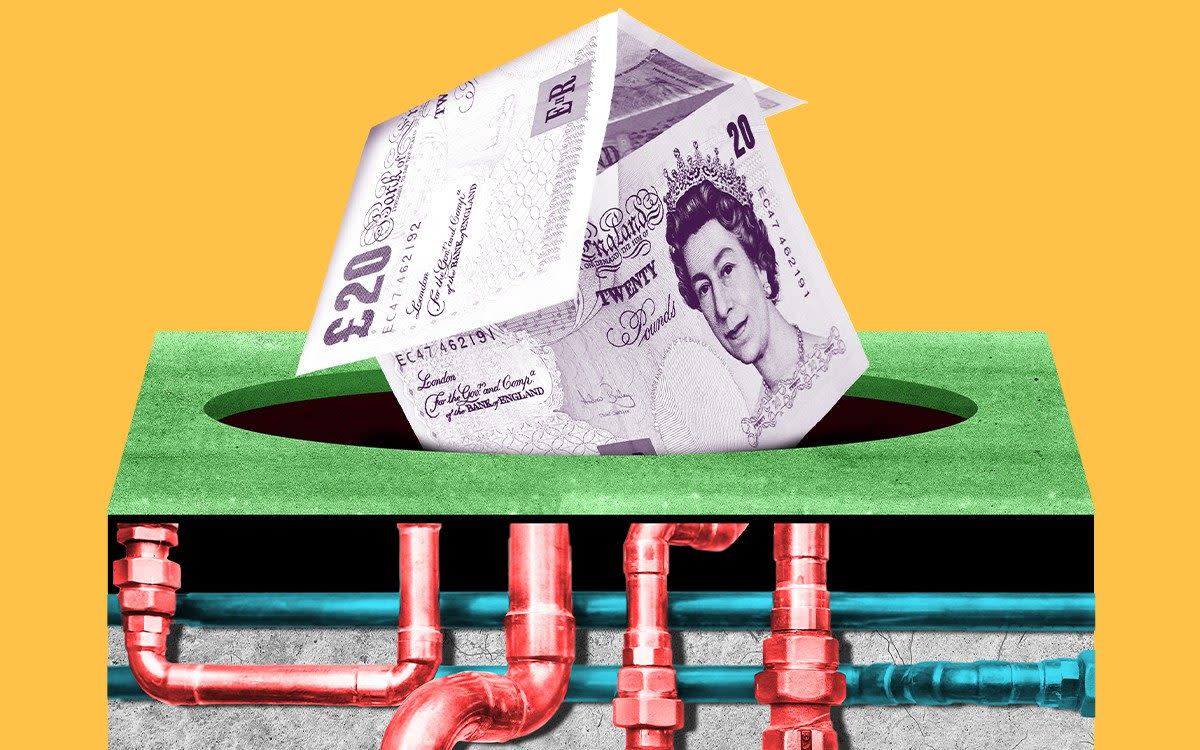Just admit that Britain isn’t ready for heat pumps

- Oops!Something went wrong.Please try again later.
One day we may look back to the winter of 2022/23 as a golden age, when most of us could still afford to keep warm. Yes, you did read that correctly. We may be in a cost of living crisis, provoked by a surge in wholesale gas prices following Vladimir Putin’s invasion of Ukraine. But compared with what is to come, it is nothing. We may have to do without a few luxuries and turn down the thermostat a degree or two, but we still have a gas or oil boiler sitting there pumping heat around our homes.
Don’t count on having that facility in future. The Government is committed to getting us to fitting heat pumps instead – electric-powered devices which act as a fridge in reverse, heating a home with heat extracted from the ambient air, or from the ground outside. From 2028, the Government wants homes to be switched to heat pumps at a rate of 600,000 a year. Its Net Zero Strategy even proposes banning all new installations of fossil fuel-powered heating systems by 2035. In the case of oil boilers, which heat millions of rural homes which, like mine, lie off the gas grid, new installations could be banned from 2026.
I would love a heat pump. I looked into it 20 years ago, before they were generally known in Britain’s plumbing industry. But I came to the same conclusion as Vonjy Rajakoba, managing director of Bosch UK, explained yesterday: that heat pumps are simply not viable in older homes. Properly installed in a newly-built, well-insulated property, they can work a treat. But if you live in modern Britain, where many Victorian properties do not have cavity walls, a heat pump is an extremely expensive way of keeping your home lukewarm. In order to work efficiently, most heat pumps need to be run at much lower water temperatures compared with gas and oil boilers.
Bosch UK should know, because it manufactures and installs the things – along with oil and gas boilers. Yet the Government doesn’t seem to have properly consulted the industry. It has toyed with converting the gas grid to run on hydrogen at some point in the future. But the cost of generating “green” hydrogen from the electrolysis of water is huge, and the industry is having problems scaling up the technology. As for rural homes, the Government seems to have no answer at all – other than an experiment in a village close to where I live in Cambridgeshire, which has just had installed an industrial-scale heat pump which is supposed to provide water at an acceptable temperature. The cost? A whacking – and highly-subsidised – £40,000 for every property in the village. That is 20 times the cost of buying and installing an oil boiler.
Another option is to strip your home back to its bricks and effectively build a new, better insulated home within. But that will also set you back many thousands of pounds – and could leave you with damp problems if not done correctly, with adequate ventilation.
Needless to say, the Government’s Boiler Upgrade Scheme, which hands out vouchers of up to £6000 for homeowners to make the switch to a heat pump, has turned out, like so many green initiatives, to be a vehicle for transferring wealth from poor to rich. To date, the number of vouchers issued ranges from 147 on wealthy South Cambridgeshire to zero in a bevy of northern and inner city constituencies.
The Government simply hasn’t thought through its net zero strategy. It blathers on about net zero saving us money and creating millions of “green jobs”. But the reality is that people might well end up paying through the nose to live in chillier homes.

